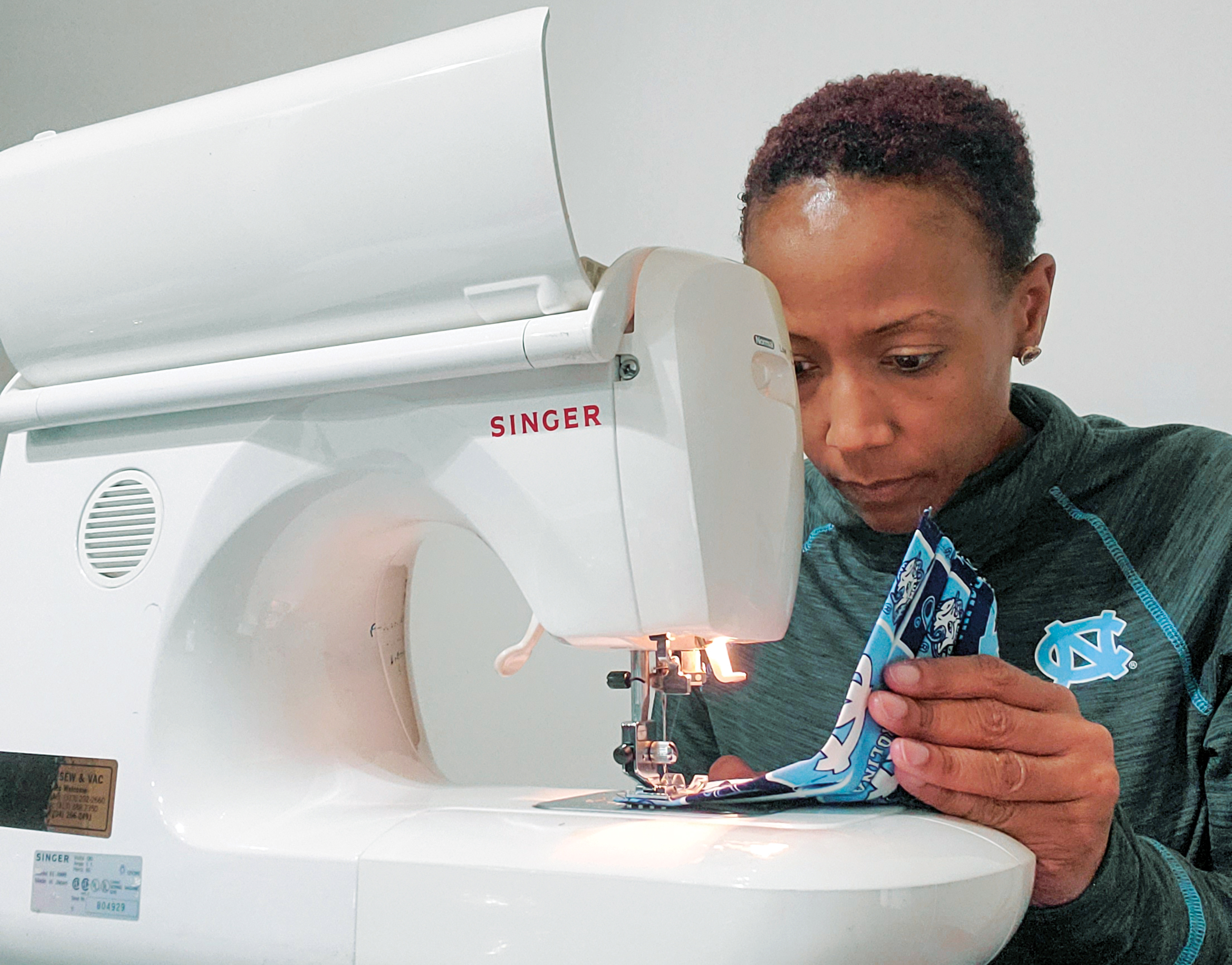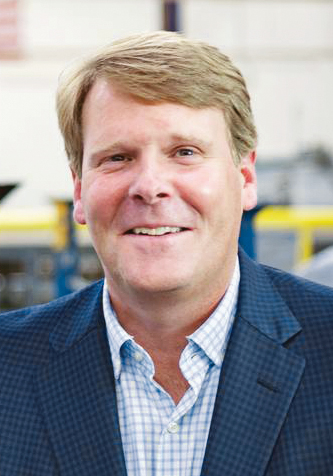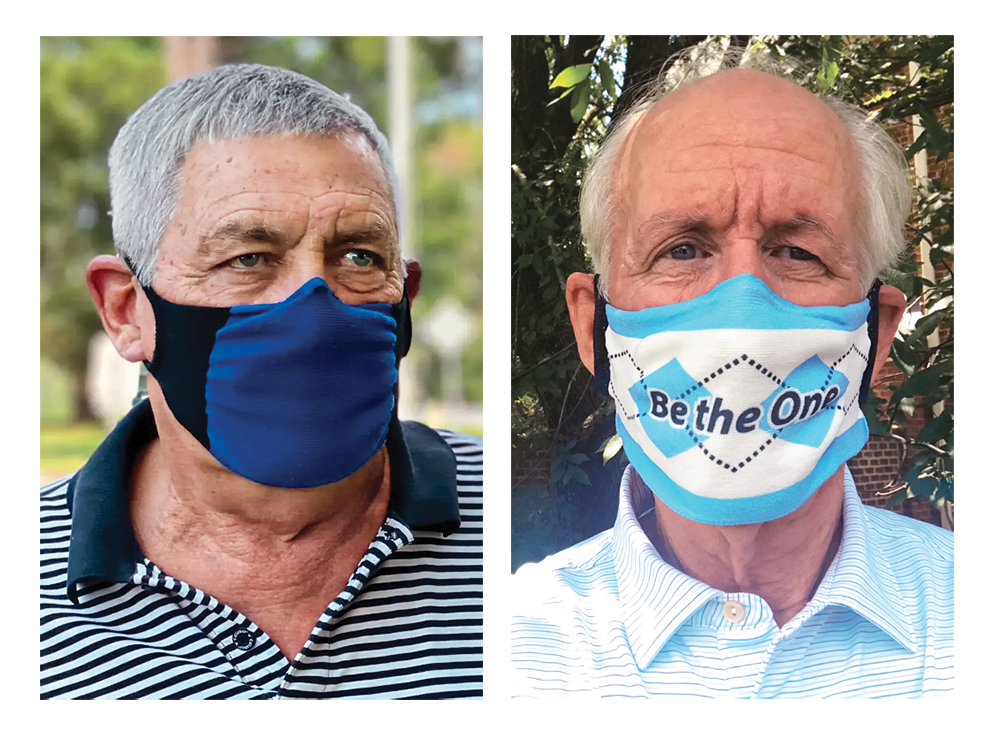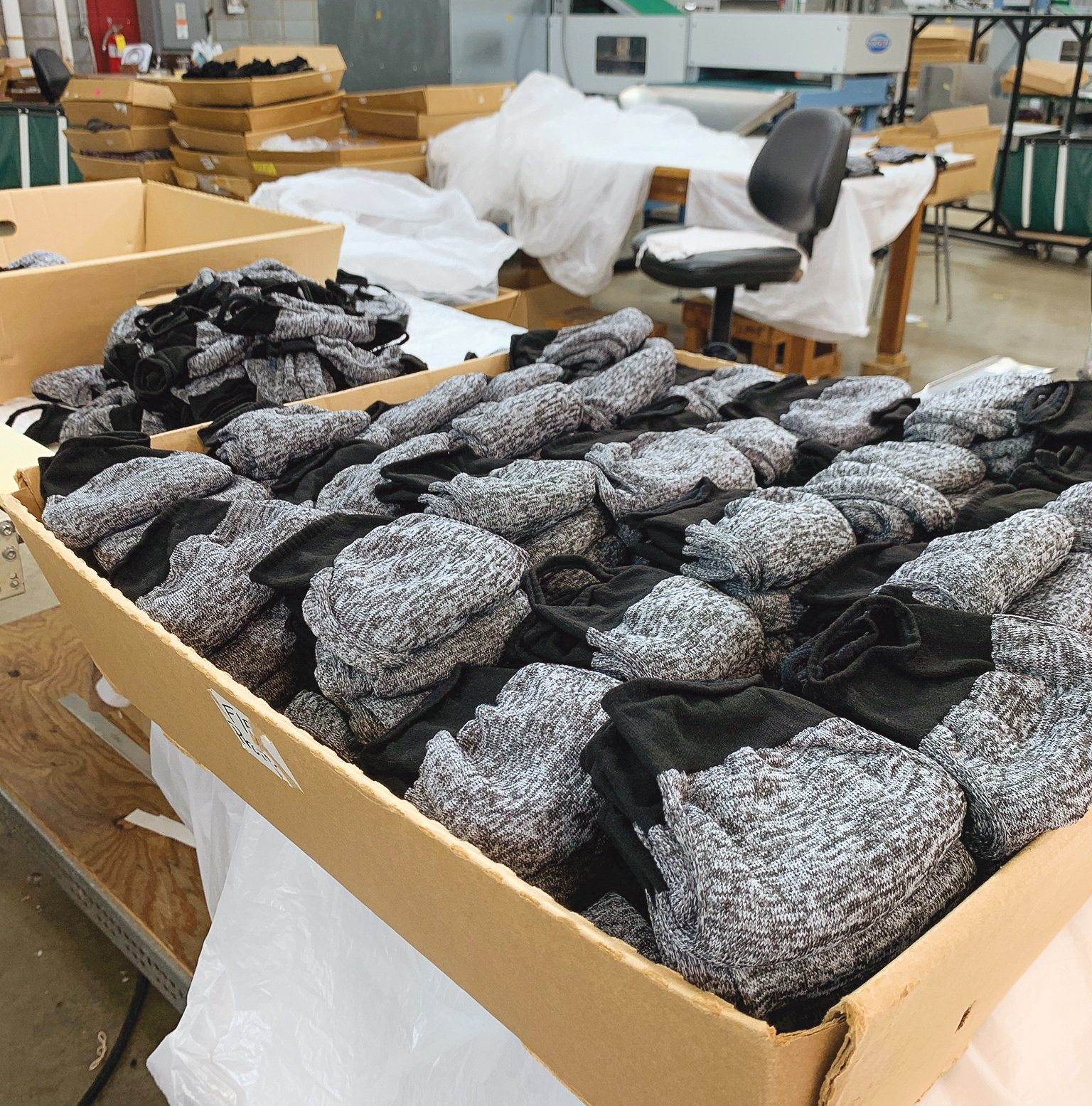The Face (Covering) of the Pandemic
Posted on Sept. 15, 2020
When masks were scarce early in the pandemic, KaRae’ Nakemia Carey ’18, a nurse at UNC Health, took to her sewing machine to make them for her police officer husband and others. (Contributed photo)
Back in February, as the world slowly awakened to the reality of COVID-19, public health authorities were still advising against widespread use of face masks. Concerned about dwindling supplies for medical workers, authorities all the way up to the U.S. surgeon general discouraged others from wearing masks.
“They are NOT effective in preventing general public from catching #Coronavirus, but if healthcare providers can’t get them to care for sick patients, it puts them and our communities at risk!” Surgeon General Jerome Adams urged on Twitter.
KaRae’ Nakemia Carey ’18 wasn’t buying it. A clinical psychiatric nurse at UNC Health, Carey was following strict masking protocols at work. But her husband, a Cary police captain who was often in close contact with strangers on the job, wasn’t.
“It didn’t make sense to me that people who were caring for people who had COVID needed a mask, but everyday citizens didn’t,” Carey said. “To me, everyone needed to be protected.”
Her training at UNC’s School of Nursing encouraged her to think critically, trust her own instincts and come up with creative solutions when official guidance was lacking. So Carey started doing her own research — on the size of the COVID microbe, the kind of masks that were considered most effective — and created homemade masks for her husband and his police colleagues. She took apart high-end air filters, the kind that go in ventilation ducts, and carefully trimmed strips of the filtration material to fit inside hand-sewn cloth. She’s able to churn out about 15 of her custom-designed masks each week, working in her spare time at the Singer sewing machine she keeps at home. She’s been giving away masks to police officers and their families.
After a Raleigh TV station aired a story about Carey’s efforts in April, she began fielding requests from other first responders and workers on the front lines. “As a nurse, we value everyone,” she said. “We want to advocate for everyone and support everyone.”
A big pivot
Breaking out her home sewing machine was a way for Carey to fulfill that mission. Robert G. “Iv” Culp IV ’93 had a similar response but with much larger machinery. Reading about the looming shortages of protective equipment, the CEO of High Point-based Culp Inc. figured an upholstery firm with a global supply chain could find a way to help.

Robert G. “Iv” Culp IV ’93
“We don’t normally make health care products,” Culp said. “But we’re producing well over a million yards of fabric every week. Cut-and-sew equipment can make anything — we just have to pivot a little bit.”
Instead of churning out upholstery for furniture and mattresses, Culp’s team started producing three-layer cotton masks and disposable coverings for hospital beds. It helped keep the factory running when many businesses were shuttered, since manufacturing protective gear is considered an essential activity.
Culp expects demand for consumer-grade masks to stay strong.
“Masks are going to be here for a while,” he said. “If you’re in a public place, in a crowd, wear a mask. It’s about being courteous to other people.”
Culp’s own employees had to get used to rigorous mask rules, part of new safety protocols to keep the facility humming during a pandemic. They also spaced out workers along the production line to keep as much distance as possible.
“For our employees, it was a huge opportunity to stay essential, to allow us to run,” Culp said. “We also had a bit of a head start because we have such a strong Asia presence. We learned a lot from our China operations as they dealt with this.”
Mask matchmaker
Across town from Culp Inc., the team at Harriss & Covington Hosiery Mills navigated a similar learning curve when it switched to producing masks. Dr. Joe Jenkins ’70, co-founder and president of a corporate wellness firm called EHOP Health, got in touch with UNC classmate Ned Covington ’69 to see about getting masks for employees of Weaver Street Market.

The companies of Ned Covington ’69, left, and Dr. Joe Jenkins ’70 teamed up to make masks for another of Jenkins’ clients, an effort that spawned a mask business.
“Weaver Street was a client, and Harriss Covington was a client,” said Jenkins, who also earned a medical degree in 1974 and a law degree in 1990 from UNC and is a past member of the GAA Board of Directors. “We thought, ‘Well, we’ll just make some masks for Weaver Street Market.’ But it turns out a lot of other people need masks, so it became a business in itself.”
At the start of a Zoom interview, Jenkins logged on wearing a Carolina blue argyle mask. That one isn’t for sale — yet — but Jenkins likes wearing it around Chapel Hill. He had one specially made for UNC head football coach Mack Brown.
Jenkins has spent a lot of time thinking about how to get people to develop health and wellness habits, and he thinks comfort is key to getting them to wear masks. Because mask-wearing wasn’t widespread outside the medical profession, there hasn’t been a lot of experimenting about what shapes, sizes, fabrics, straps and other variables consumers want in a mask.
 “You find out you need a nose bridge; you find out you need an insert for added filtration. Polyester masks are definitely warmer. The nylon masks are certainly cooler,” Jenkins said. “We’re always trying to improve it.”
“You find out you need a nose bridge; you find out you need an insert for added filtration. Polyester masks are definitely warmer. The nylon masks are certainly cooler,” Jenkins said. “We’re always trying to improve it.”
Not just the mask, but also the messaging. The shifting advice about masks for the public — they’re now urged by public health officials and required for public outings in many jurisdictions — sparked confusion and helped turn mask-wearing into a political issue. Jenkins, who worries about the economic and societal consequences of shutdowns and social distancing measures, thinks the guidance on masks needs to be simple and compelling.
“You’re wearing a mask to protect everybody else. I think we have to get the message out to people that yeah, there are all these frictions and tensions. But the fact is, I can protect you, and you can protect me. We’re doing it for other people.”
— Eric Johnson ’08
